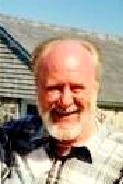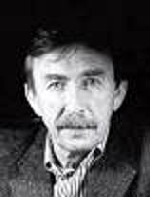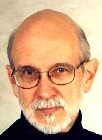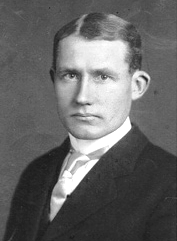
The relationship between religion and science involves discussions that interconnect the study of the natural world, history, philosophy, and theology. Even though the ancient and medieval worlds did not have conceptions resembling the modern understandings of "science" or of "religion", certain elements of modern ideas on the subject recur throughout history. The pair-structured phrases "religion and science" and "science and religion" first emerged in the literature during the 19th century. This coincided with the refining of "science" and of "religion" as distinct concepts in the preceding few centuries—partly due to professionalization of the sciences, the Protestant Reformation, colonization, and globalization. Since then the relationship between science and religion has been characterized in terms of "conflict", "harmony", "complexity", and "mutual independence", among others.

Unitarian Universalism is a liberal religious movement characterized by a "free and responsible search for truth and meaning". Unitarian Universalists assert no creed, but instead are unified by their shared search for spiritual growth. Unitarian Universalists do not have an official, unified corpus of sacred texts but rather draw inspiration and guidance from the Six Sources: personal experience, prophetic utterances, world religions, Jewish and Christian teachings, humanist teachings, and spiritual teachings. Unitarian Universalist congregations include many atheists, agnostics, deists, and theists and have churches, fellowships, congregations, and societies around the world.
Unitarianism is a Nontrinitarian branch of Christianity. Unitarian Christians affirm the unitary nature of God as the singular and unique creator of the universe, believe that Jesus Christ was inspired by God in his moral teachings and that he is the savior of humankind, but he is not comparable or equal to God himself.
A Humanist Manifesto, also known as Humanist Manifesto I to distinguish it from later Humanist Manifestos in the series, was written in 1933 primarily by Raymond Bragg and published with 34 signers. Unlike the later manifestos, this first talks of a new religion and refers to humanism as "the religion of the future." Nevertheless, it is careful not to express a creed or dogma. The document outlines fifteen affirmations on cosmology, biological and cultural evolution, human nature, epistemology, ethics, religion, self-fulfillment, and the quest for freedom and social justice. This latter, stated in article fourteen, proved to be the most controversial, even among humanists, in its opposition to "acquisitive and profit-motivated society" and its demand for an egalitarian world community based on voluntary mutual cooperation. The document's release was reported by the mainstream media on May 1, simultaneous with its publication in the May/June 1933 issue of the New Humanist.
Spiritual ecology is an emerging field in religion, conservation, and academia that proposes that there is a spiritual facet to all issues related to conservation, environmentalism, and earth stewardship. Proponents of spiritual ecology assert a need for contemporary nature conservation work to include spiritual elements and for contemporary religion and spirituality to include awareness of and engagement in ecological issues.

Religious naturalism is a framework for religious orientation in which a naturalist worldview is used to respond to types of questions and aspirations that are parts of many religions. It has been described as "a perspective that finds religious meaning in the natural world."
Nancey Murphy is an American philosopher and theologian who is Professor of Christian Philosophy at Fuller Theological Seminary, Pasadena, CA. She received the B.A. from Creighton University in 1973, the Ph.D. from University of California, Berkeley in 1980, and the Th.D. from the Graduate Theological Union (theology) in 1987.
Ecotheology is a form of constructive theology that focuses on the interrelationships of religion and nature, particularly in the light of environmental concerns. Ecotheology generally starts from the premise that a relationship exists between human religious/spiritual worldviews and the degradation or restoration and preservation of nature. It explores the interaction between ecological values, such as sustainability, and the human domination of nature. The movement has produced numerous religious-environmental projects around the world.
The Clergy Letter Project is a project that maintains statements in support of the teaching of evolution and collects signatures in support of letters from American Christian, Jewish, Unitarian Universalist, Buddhist, and Humanist clergy. The letters make reference to points raised by intelligent design proponents. There are five separate letters: A Christian Clergy Letter, a Rabbi Letter, a Unitarian Universalist Clergy Letter, a Buddhist Clergy Letter, and a Humanist Clergy Letter. As of October, 2022, there were 15,679 signatures from Christian clergy, 839 signatures from Jewish rabbis, 688 signatures from Unitarian Universalist clergy, 75 signatures from Buddhist clergy, and 58 signatures from Humanist clergy.
In social, cultural and religious studies in the United States, the "epic of evolution" is a narrative that blends religious and scientific views of cosmic, biological and sociocultural evolution in a mythological manner. According to The Encyclopedia of Religion and Nature, an "epic of evolution" encompasses
the 14 billion year narrative of cosmic, planetary, life, and cultural evolution—told in sacred ways. Not only does it bridge mainstream science and a diversity of religious traditions; if skillfully told, it makes the science story memorable and deeply meaningful, while enriching one's religious faith or secular outlook.

Robert S. Corrington is an American philosopher and author of many books exploring human interpretation of the universe as well as biographies on C.S. Peirce and Wilhelm Reich. He is currently the Henry Anson Buttz Professor of Philosophical Theology at Drew University in Madison, New Jersey. Before that he was a professor at Pennsylvania State University. He is a Senior Fellow of the American Institute for Philosophical and Cultural Thought.

Philip Hefner is a professor emeritus of systematic theology at the Lutheran School of Theology at Chicago.

Loyal D. Rue is an American philosopher of religion. He is a professor emeritus of religion and philosophy at Luther College of Decorah, Iowa. He focuses on naturalistic theories of religion and has been awarded two John Templeton Foundation fellowships. He has been for many years a member and lecturer at the Institute on Religion in an Age of Science (IRAS).
İbrahim Özdemir is a Kurdish philosopher, academic and Islamic environmentalist. He is a professor of philosophy at Uskudar University and Director General of the Department of Foreign Affairs, the Ministry of National Education, Turkey.

Jerome A. Stone is an American author, philosopher, and theologian. He is best known for helping to develop the religious movement of Religious Naturalism. Stone is on the Adjunct Faculty of Meadville Lombard Theological School; is Emeritus Professor of Philosophy at William Rainey Harper College; is in Preliminary Fellowship with the Unitarian Universalist Association; and is a member of the Highlands Institute of American Religious and Philosophical Thought and the Institute on Religion in an Age of Science (IRAS).

Henry Nelson Wieman (1884–1975) was an American philosopher and theologian. He became the most famous proponent of theocentric naturalism and the empirical method in American theology and catalyzed the emergence of religious naturalism in the latter part of the 20th century. His grandson Carl Wieman is a Nobel laureate, and his son-in-law Huston Smith was a prominent scholar in religious studies.

Spiritual naturalism, or naturalistic spirituality combines a naturalist philosophy with spirituality. Spiritual naturalism may have first been proposed by Joris-Karl Huysmans in 1895 in his book En Route.
Coming into prominence as a writer during the 1870s, Huysmans quickly established himself among a rising group of writers, the so-called Naturalist school, of whom Émile Zola was the acknowledged head...With Là-bas (1891), a novel which reflected the aesthetics of the spiritualist revival and the contemporary interest in the occult, Huysmans formulated for the first time an aesthetic theory which sought to synthesize the mundane and the transcendent: "spiritual Naturalism".
Willem Bernard "Wim" Drees is a Dutch philosopher. As of the 1st of November 2014 he is professor of philosophy of the humanities at Tilburg University in the Netherlands. From 2008 until 2018 he was the editor-in-chief of Zygon, Journal of Religion & Science and professor of philosophy of religion at Leiden University, the Netherlands.
Varadaraja Venkata Raman is Emeritus Professor of Physics and Humanities at the Rochester Institute of Technology.
Although biological evolution has been vocally opposed by some religious groups, many other groups accept the scientific position, sometimes with additions to allow for theological considerations. The positions of such groups are described by terms including "theistic evolution", "theistic evolutionism" or "evolutionary creation". Of all the religious groups included on the chart, Buddhists are the most accepting of evolution. Theistic evolutionists believe that there is a God, that God is the creator of the material universe and all life within, and that biological evolution is a natural process within that creation. Evolution, according to this view, is simply a tool that God employed to develop human life. According to the American Scientific Affiliation, a Christian organization of scientists:
A theory of theistic evolution (TE) — also called evolutionary creation — proposes that God's method of creation was to cleverly design a universe in which everything would naturally evolve. Usually the "evolution" in "theistic evolution" means Total Evolution — astronomical evolution and geological evolution plus chemical evolution and biological evolution — but it can refer only to biological evolution.









